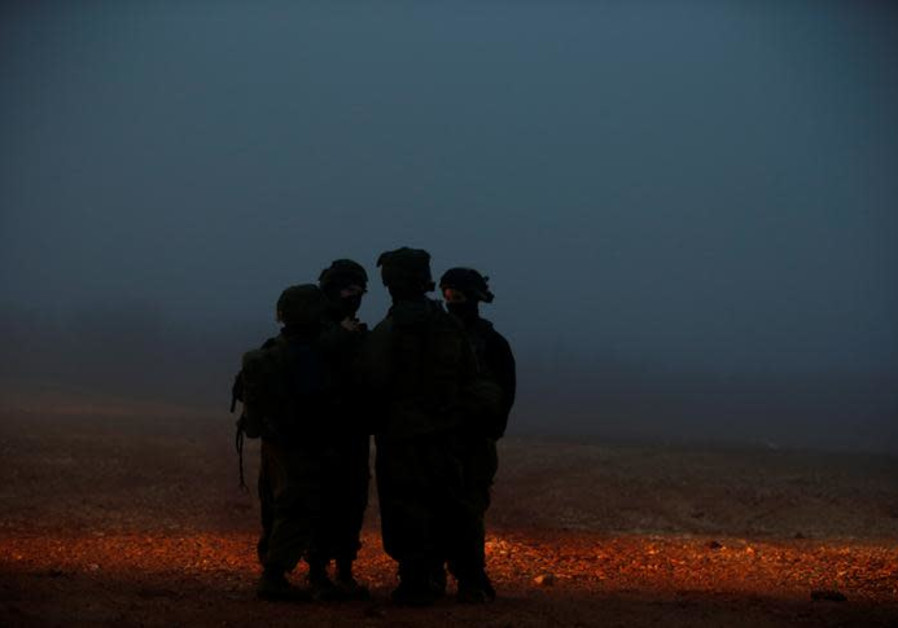 Katokomuna – zapomniany flirt katolików z komunizmem
Katokomuna – zapomniany flirt katolików z komunizmem
Stanisław Obirek
 Podczytuję sobie w tych dniach ciekawą książkę młodego amerykańskiego badacza wydaną w 2016 roku przez IPN. Zatytułowana dość niewinnie: Personalizm po polsku. Francuskie korzenie polskiej inteligencji katolickiej. Tymczasem jej treść powinna zaciekawić zarówno katolików, jak i piewców katolickiej niewinności. Otóż mówi ni mniej, ni więcej tylko o fascynacji polskich katolików komunizmem. Co więcej, ta ich fascynacja przerodziła się w całkiem konkretne zaangażowanie w budowę „nowego lepszego świata”.
Podczytuję sobie w tych dniach ciekawą książkę młodego amerykańskiego badacza wydaną w 2016 roku przez IPN. Zatytułowana dość niewinnie: Personalizm po polsku. Francuskie korzenie polskiej inteligencji katolickiej. Tymczasem jej treść powinna zaciekawić zarówno katolików, jak i piewców katolickiej niewinności. Otóż mówi ni mniej, ni więcej tylko o fascynacji polskich katolików komunizmem. Co więcej, ta ich fascynacja przerodziła się w całkiem konkretne zaangażowanie w budowę „nowego lepszego świata”.
Jest tam mowa nie tylko o byłym faszyście, który cudownie przemienił się w piewcę nowego systemu, zdobywając niezwykłą wprost pozycję pośrednika pomiędzy nową władzą a kościołem (to oczywiście Bolesław Piasecki). Jest też mowa o młodych katolikach, którzy dzielnie mu pomagali w kształtowaniu katolicko-komunistycznej mentalności (Janusz Zabłocki i Tadeusz Mazowiecki).
O katokomunie pomyślałem, czytając świetny tekst Włodzimierza Goldkorna w Gazecie Wyborczej zatytułowany „Komunizm był dla wielu Żydów związany z chęcią wyrwania się z zatęchłych ścian Sztetła”. Z tego ciekawego artykułu, do którego z kolei pretekstem była książka „My dzieci komunistów”, zacytuję tylko jeden, ale znamienny fragment: „A więc żydokomuna? I tak, i nie. Tak, bo — powtarzam — komunizm był dla wielu Żydów ściśle związany z ich przynależnością, z chęcią wyrwania się z zatęchłych ścian sztetla (za którymi to ścianami dziś odczuwa się niezdrową tęsknotę), pomysłem i sposobem emancypacji. Nie, bo komunizm (być może to paradoks) był drogą do polskości właśnie, był dla wielu żydowskich wyznawców tej świeckiej wiary w Zbawienie czymś podobnym do myśli Juliana Tuwima, kiedy ten pisał: „Jojne, idź na wojnę! Poszedł, szanowni panowie, i zginął za Polskę”. I nie, bo większość Żydów w Polsce daleka była od komunizmu, a emancypację wyobrażała sobie inaczej niż pod sowieckimi flagami”. Jednak niektórych Żydów mogło popychać w stronę nowej władzy jeszcze coś, o czym mówi się i pisze rzadziej – niechęć, a nawet wrogość polskich katolików.
 nadesłał: Leon Rozenbaum
nadesłał: Leon Rozenbaum
W tym kontekście naszła mnie zdrożna myśl, a co by się stało, gdyby jakiś katolik napisał, że „Komunizm dla katolików był realizacją ich marzenia o równości i sprawiedliwości”?
A przecież dla wielu właśnie tak było. Nawet wśród kleru ta liczba byłą znaczna, np. w 1954 roku było około tysiąca tzw. księży patriotów, czyli około 10% wszystkich kapłanów, drugie tyle współpracowało ze służbami tajnymi. Niektórzy do samego końca, czyli do 1990 roku. Powstaje na ten tema sporo publikacji. Z czystej ciekawości je przeglądam, bo dotyczą też bliskiego mi zakonu jezuitów.
Ale nie tylko o sympatie do komunizmu chodzi.
Równie ciekawie przedstawia się ówczesny antysemityzm, czyli po prostu organiczna wprost wrogość społeczeństwa polskiego do nielicznych Żydów, którym udało się cudem przeżyć Zagładę. Kosicki we wspomnianej książce obszernie cytuje relacje z podróży Emanuela Mouniera, który wraz z innymi intelektualistami francuskimi (katolikami i komunistami) odwiedził Polskę w maju 1946 roku (od 6 do 31), a obszernymi refleksjami podzielił się z czytelnikami swego pisma „Esprit” już w czerwcu.
Tekst jest dostępny w wersji elektronicznej, więc go sobie przeczytałem. Oj, niewesołe tam spostrzeżenia, zwłaszcza na temat polskiego, tuż powojennego antysemityzmu. O ile wiem, przed Kosickim nikt tego tekstu nie wyzyskał, więc pozwalam sobie przytoczyć fragmenty z rzeczonej książki, które polecam uwadze badaczy z IPN-u. Jak wiadomo, to właśnie historycy skupieni w tym Instytucie od lat gorączkowo szukają milionów sprawiedliwych wśród narodów świata. To chwalebne wysiłki, które jednak warto skonfrontować tym, co widzieli naoczni świadkowie, jak choćby katolik Mounier, życzliwie nastawiony do polskiego społeczeństwa.
Dodać trzeba, że swoje spostrzeżenia Mounier kreślił na miesiąc przed pogromem kieleckim. Kosicki zauważa, że „Powojenny antysemityzm wyrósł z doświadczeń czasu wojny oraz z religijno-ideologicznej mieszaniny, w której skład wchodziła swego rodzaju odmowa Żydom statusu »osoby ludzkiej« w sensie personalizmu katolickiego”. Odwołuje się przy tym do najnowszych badań historyków skupionych w Ośrodku Badań nad Zagładą Żydów, przywołuje też najbardziej znane publikacje Jana Tomasza Grossa. Znamy je; natomiast po raz pierwszy chyba w literaturze związanej z tym okresem został przypomniany esej Mouniera.
Oto komentarz Kosickiego do tych właśnie fragmentów: „Mounier z iście zegarmistrzowską precyzją zdiagnozował przewrotnie paradoksalny skutek, jaki przyniósł Polsce koniec wojny — wskrzeszenie antysemityzmu”. A tu fragment ze strony 999 artykułu „L’ordre regne-t-il a Varsovie?”, Esprit czerwiec 1946 w tłumaczeniu Kosickiego:
Można było sądzić, że ta hekatomba położy kres antagonizmowi rasowemu, tym bardziej że większość Polaków zachowała się w podziwu godny sposób, ratując prześladowanych. Jednak niemal w każdym środowisku, również w środowiskach katolickich, a nawet wśród najbardziej wielkodusznych czy najwyżej postawionych katolików antysemityzm kwitnie, jak gdyby eksterminacja nigdy nie dotknęła narodu Izraela. […] Jednak twarda postawa, jaką przyjmują wszyscy, gdy tylko poruszy się ten temat, nie zdając sobie sprawy, że popadają w najbardziej pospolity na całym świecie model antysemityzmu — wszystko to przyczynia się do panowania pewnego klimatu pogardy, zdystansowania i rozproszonej wrogości, w którym akty przemocy, mające swe korzenie gdzie indziej — bez względu na to, co się dzieje — znajdują tu pewne współsprawstwo.
 Stanisław Obirek
Stanisław Obirek
Profesor Teolog, historyk, antropolog kultury, profesor nauk humanistycznych, profesor zwyczajny Uniwersytetu Warszawskiego, były jezuita. Ur. 1956
Więcej w Wikipedii



